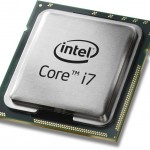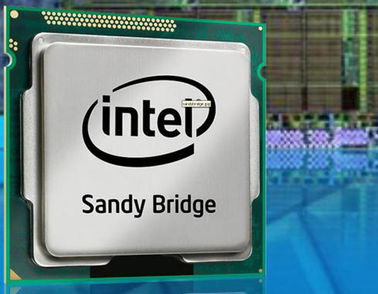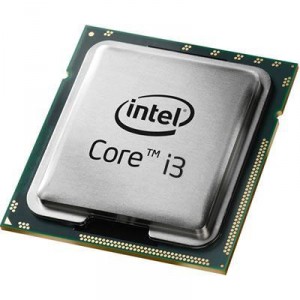Intel Socket 1155 vs 1156 vs 1366 (x58) vs 2011
Last Updated on Saturday, 9 April 2011 06:12 Written by Naota Monday, 7 March 2011 08:25
Oh goodness Intel. You really have created a mess of things these days with all these different sockets. This has created problems and tough decisions for many consumers. These various sockets all have their ups and downs. Do not worry, we will help you through it.
In terms of performance, I will go ahead and rank them from greatest to least.
1st: Socket 2011 – to be released near December 2011
2nd: Socket 1366 – to begin getting phased out at the end of the year
3rd: Socket 1155 – New
4th: Socket 1156 – just began being phased out
5th: Socket 775 – almost completely phased out
So you might be wondering which product you should buy. So let’s dig in deeper.
Socket 2011 and 1366
Socket 2011 is suppose to be Intel’s latest high-end socket. It essentially is the future replacement for Intel’s 1366 Socket. Think 1366 with Intel’s latest Sandybridge Architecture. When this product comes out in December, expect Socket 1366 to be phased out. One thing is for sure, Socket 2011 will deliver better performance than any of other offering on this list. You just have to decide if you want to wait for it or not. Personally I am kind of impatient.
Both of these sockets are designed for heavy CPU Usage. This socket is most recommended for those of you who do 3D Animation, Video Editing, Audio/Video Encoding or Decoding, Etc. Don’t get me wrong, these two sockets will perform everything just as good, if not better than the other sockets available on this list. The design of the x58 Chipset (Socket 1366) allows for better PCI Express usage as well. You also will not find yourself a 6 core CPU with the 1155 and 1156 sockets.

Pros of Socket 2011:
Should be the fastest socket out there.
Will use proven and tested Sandy Bridge Architecture
Will have hexacore (6 core) options at the very least
Quad-Channel Memory (Rumored)
Cons of Socket 2011:
Will be the most expensive socket available
Won’t be available till Q4 2011

Pros of Socket 1366:
Fastest Available Socket to date
Only Hexacore (6 core) platform
Supports more lanes of PCIe bandwidth / PCIe cards
Tri-Channel Memory
Cons of Socket 1366:
Will be phased out at the end of the year
Expensive price tag that makes this purchase a lot harder to justify with the advent of 1155
Socket 1366 versus 1155
Intel recently released their new Sandybridge Processors earlier this year. This socket was 1155. These new processors actually store the video card controller in the CPU and give extreme performance/over clock abilities. The new motherboards for this socket have just rolled out, as their was a recall on them several weeks ago.
This socket is targeted towards the mainstream PC users. You will find that it can play games, and will even perform well in rendering, video editing, etc. The performance gap between this socket and 1366 decreases exponentially if you are able to buy a K series 1155 socket processor and overclock it. This socket is the most powerful in terms of efficiency per core. However, the hexacore options for the Socket 1366 will overtake this socket any day when performing most tasks.
Pros of the Socket 1155:
Best price to performance ratio
Integrated graphics option (H Series Chipset)
Most efficient use of cores
New socket that will last for a while
Supports modern video cards and technologies (and will for some time)
Cons of the Socket 1155:
Motherboards are steadily increasing in price ever since the recall
Low Motherboard availability
Overwhelming amount of Chipset Options
No hexacore options
Less PCIe capabilities than the x58 (socket 1366)
Dual Channel Memory
~~~ View Additional LGA 1155 Motherboards and Processors ~~~
Socket 1155 Versus Socket 1156
It seems like not long ago that Intel just released Socket 1156 to the public. This socket was the prior mainstream socket. With the advent of Socket 1155 (Sandybridge), this socket is now being phased out. This will create lower prices for Socket 1156’s current offerings, but don’t expect any chances of upgrading the CPU on this socket it in the future. You will be at the end of the road.
Pros of Socket 1156
Good performance
Steadily decreasing in price
Good lineup of options
Cons of Socket 1156
Being phased out (already!)
Not many PCIe options
Dual Channel Memory
~~~ View Additional LGA 1155 Processors and Motherboards ~~~
You will get good performance nonetheless. This socket should only be considered by those of you who limit yourself to tasks such as watching videos on youtube, performing light gaming (or gaming on medium settings). Even if you want to do some photo shop, video editing, 3d animation, etc. you will undoubtedly be able to accomplish this task. You just won’t be able to get the same level of performance as the newer sockets. The same can be said about Socket 775.
The Editor’s opinion:
If you already have socket 1156 and want to upgrade, then wait till Socket 2011 comes out and lowers the price of the other sockets.
If you have socket 775, then you will find a great performance increase when jumping to 1155 or 1366.
Deciding between 1155 and 1366? If you aren’t a 3d Animator or do CAD drawings then go for 1155. The price savings is more than worth it. Especially considering 1366 is a dying socket. Get a K series 1155 CPU and overclock it.
Okay I am done rambling for now.
Good luck with your decision, and feel free to ask any questions.
To find the some of the best deals, shop through Newegg and Amazon. Remember to look at other user reviews as well.


[…] catching on. You can read our article comparing Intel's most relevant sockets now. You can read Intel Socket 1155 vs 1156 vs 1366 vs 2011 here.google_ad_client = "pub-4430650839711667";google_ad_slot = "1473804404";google_ad_width = […]
Hey, thanks so much i found this so useful!
Hi Ryan! Thanks for the thanks. I am glad it helped mate.
lot imformation..thank you.
You’re welcome. =)
Too bad that (currently) 1155 Rev.3 or B3 stepping mobos are lacking in SLi capabilities. Only XFire so far? Come on already! I want to upgrade and SLi NOW!!!
Thanks, your compare was very good!
crystal clear.
except for one thing.
going from a 775 wanting to upgrade, being a big time gamer…
1156? or 1366?
Hi Yag. You can do SLI on those boards mate.
Castrum, thanks for th thanks! =)
fatsmurf how much were you looking to spend on a processor? And how many video cards did you plan on having?
Very good comparision, just right details. I have added you to my favourite link. Thank you
Thank you for this information, it really helped alot.
You’re welcome! I am glad it helped.
thanks this was very informative. but i have a question: as far as hexa core procs go will the 2011 socket have support for this? or if i want a hexa build should i just settle for the 1366 now? as far as proc intensive programs i assume sound editing/production software is up there with 3d animations and cad, never used the latter but the sound editing/production software i use seems to need horsepower
@Wannab Good question. I should have answered that in the article. As far as Hexa-Cores go, the 2011 socket WILL have support for them. If you can wait then I highly suggest you do. One of the best features of the 1155 socket (sandybridge) is its per-core efficiency. The 2011 socket will incorporate this efficiency as well, and will have at least six cores. I am looking forward to it for the same exact reasons since I sometimes work on games (3d rendering/photoshop, audio-editing, and CAD drawings)
Thanks for this – perfect balance of detail of available options now and what’s coming up. Looks like it is an 1155 for me now on my incremental upgrade from 775, and a 2011 for my new rig at the end of the year.
Very informative articel. Superb done, helped me very much. You sir are the Internets.
Nice one dude.. Still i can’t figure what to do.. They say that the new Ivybridge might have 20% overall increase over sandybridge.?! Maybe i should just sell my 1156 to my friend (his mobo died and need new stuff anyway) and buy a 1155… Im not going to play in surround or crazy FullHD+ modes or anything atm, so maybe i would go for it just untill jan 2012..? 🙂
http://en.wikipedia.org/wiki/Sandy_Bridge#Ivy_Bridge
thanks for this
Excellent. I´ve read articles all day long but now I have a consistent idea of what I´m gonnna do.
Thank you for being so clear!!
thanks alot.it was so good.i were searching alot abt the difference till i read your article.
Thanks for all the comments everyone I am glad that it has helped you all.
@wond3rboy – Ivy Bridge definitely will have some good gains for the enthusiasts. If you aren’t going crazy with anything then 1155 is good for you. If you are not in a rush then just wait for Ivy Bridge to bring down the prices.
Many thanks Naota! It’s been a few years since I’ve bought and thoroughly looked at the developments in CPU’s, back when the “i” cores didn’t exist yet. Now I was curious about upgrading and I was completely bewildered in all the socket choices, this was exactly what I was looking for! I think I’ll just wait since an upgrade would be nice, but isn’t that urgent for me atm, so I might as well be patient and prepared for the future. Again, many thanks!
Hey,
I am thinking of upgrading my cpu to an i7 chip. i currently have the i5 760 2.8ghz 8mb chip with a socket 1156. Do you think i should upgrade to an i7 chip and just wait until the comp starts to get past its peak then switch to a new socket or should i switch to a new socket? My comp right now is fine i was just thinking of increasing the cpu.
Thanks
thanks great info
Thx for nice info my system is Q6700 proc with motherboard and want upgrade so choice is crystal clear 1155 with K proc on it
Very useful information.
Thanks
Excellent review, Few words and just plain useful info. NO information pink noise. Thanks
Good review for a basic overview but only the real picky would want to check out all the benchmark variations per socket on a variety of mobos, I think I’ll save that amount of study time and just try to save for socket 2011 and ATI’s 6990 X2 in quadfire becaus I like to do alot of BOINC crunching….which even on my current Q9650 OC’d to 3.6 Ghz and ASUS P5E3 Premium and Deluxe boards with a Q6600 handles pretty impressive loads in MMO games even while crunching on the CPU. Definitely time to upgrade my 3 year old Diamond 4870 X2’s and get with the DirectX 11 program, though the 4870 X2’s are still quite a beast and can handle every MMO at Max settings and Crisis at Enthusiast with no hiccups. Occasionaly conservative on a few graphics settings like WOW’s shadows implementation just kills the framerate. Oh yeah its all in the giant Thermaltake Mozart TX VE1000SWA case.with an Ultra X3 1600 Watt power supply. Four AC powered Orion fans on a dimmer pushing around 500 cfm.
Look, I wouldn’t necessarily advise anyone to pick up an 1156 at the moment, because it is end of the road stuff, but the idea that running an i7 860 on 1156 hardware “should only be considered by those of you who limit yourself to tasks such as watching videos on youtube, performing light gaming (or gaming on medium settings)” is absolutely crazy. It may be mainstream rather than enthusiast, but i7 performance is still basically uneccessarily fast.
I’m wondering how the Xeon e5 1660 will compare against the i7 3960X. What will the net affect of the 2xQPI be on the 1660? Will the CPU have greater access to the memory? What other pros and cons do you see between these 2? Thanks for the article.
Thank you! it has helped a lot to understand
A thread from April and still worth my time to read and thanks for the clear explanations =)
So right this moment it’s Nov 2011 and I’m wondering, should I be waiting for socket 2011 or still go to the 1366 in terms of reasonable pricing (2nd hand CPU, pretty sure go for xeon),
I’m kind of looking at 2 CPU board and EVGA SR-2 is so far the best in the field, my plan is getting 2 hexacore or up-coming octacore for multi-thread 100% calculation, plus maximum amount of non-ECC Ram for the use( Ram is cheap at my place)
although I’m not planning to build 3 or 4 way SLI yet I might have change my mind when I have extra money.
so my biggest question is should I go for SR-2(socket 1366, older xeon CPUs that have clear budget) or should I be waiting for next generation (socket 2011, assume alot higher budget with the new CPUs?)
Thank you. Your comparison was very helpful. 1155 it i, on a gigabyte g1.sniper2!
2011 is an updated 1366
1155 is an updated 1556
for the consumer, thats all you really need to know.
ivy bridge will use 1155 socket, and honestly the core i5 2500k sandy bridge that uses the 1155 socket is amazing for games, paying any more for a cpu is almost silly
if your a gamer you need nothing more then the i5 2500k and probably won’t for the next 3-5 years.
Thanks for the great summary in “Editor’s opinion”
Is it true that most of the motherbords using Socket 2011 processors have an E ATX size and not ATX?
WOW, usrev2. You are WAY wrong!!!. Ivy bridge will NOT be on 1155, but exclusively on 2011!!! Don’t know where you get your “info” from, but you may want to visit the Intel website from time to time.
Just the most obvious difference alone is a major difference in performance.
2011 = 4x mem pipe
1155 = 3x mem pipe.
Draco, dude shut you trap and “visit the Intel website from time to time”, Ivy Bridge is already on 1155.
LOL at Draco hahahahaha
okay man i have this Q9550 Quad core and want to upgrade but dont want to buy this 2011 thing. What proc do you advice to buy.